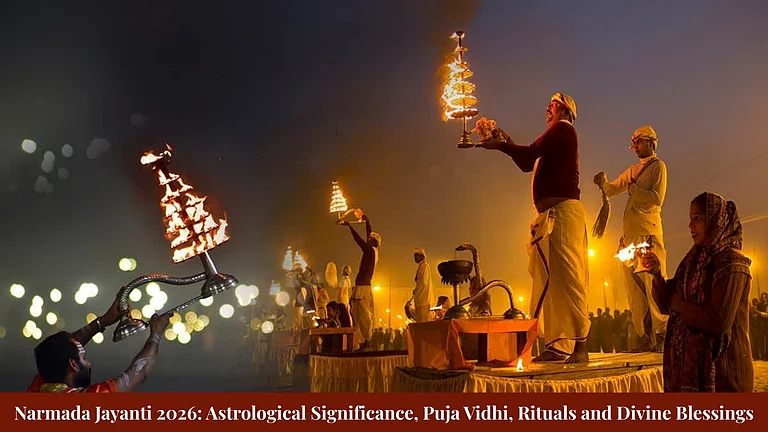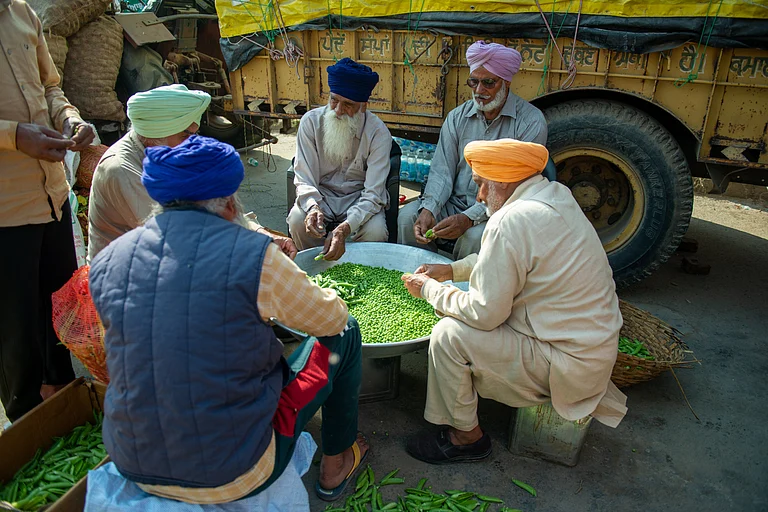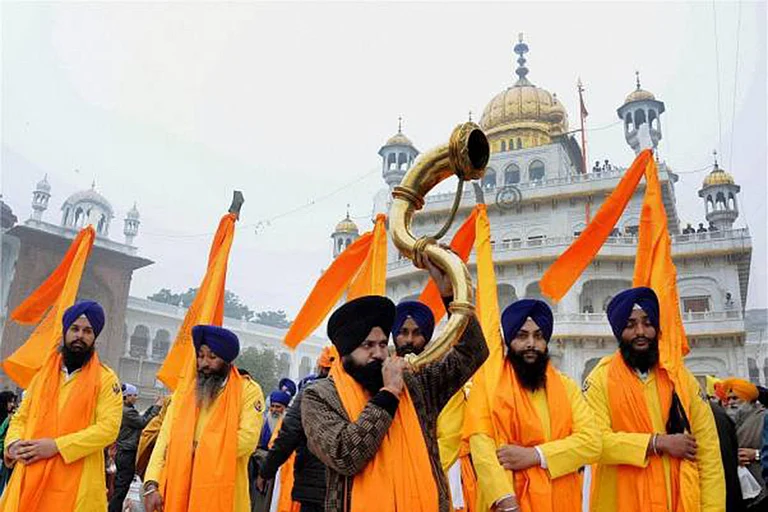The first Sikh Guru, Guru Nanak Dev, ji’s birth anniversary is celebrated as Guru Nanak’s Prakash Utsav, or Guru Parab. This sacred festival will be celebrated on 15th November 2024. This year, Sikh People will be celebrating the 555th birth anniversary of the first of the ten Sikh Gurus and the founder of Sikhism Guru Nanak Ji. The auspicious festival is one of the sacred festivals in Sikhism, and is celebrated on the day of Kartik Poornima, which is the fifteenth lunar day in the month of Kartik, and usually falls in November by the Gregorian Calendar. The day holds immense historical, spiritual, and cultural significance, offering a time for reflection on Guru Nanak’s teachings and their relevance in today’s world. In this article, we will discuss the history, significance and details of this most important festival of Sikhism.
When is Guru Nanak Jayanti 2024?
Date: November 15, 2024 (Friday)
Purnima Tithi Begins: 06:19 AM on November 15, 2024
Purnima Tithi Ends: 02:58 AM on November 16, 2024.
History of Guru Nanak Jayanti

According to the Nanakshi calendar, Guru Nanak Dev Ji was born on April 14, 1469, in the village of Rai Bhoi Ki Talwandi near Lahore, now known as Nankana Sahib, in modern-day Punjab. However, the Sikh communities, hold the belief that Nanak was born on the full moon day of Kartik. His birth is commemorated on the full moon day of Kartik (Kartik Purnima), which usually falls in October or November. His mother was Tripta Devi, and his father was Kaluram Mehta Ji Khatri, aka Kaluram Chand Das Bedi. Nanak got married to Sulakhani Devi.
From a young age, Guru Nanak displayed an extraordinary spiritual inclination, questioning the traditional practices and rituals prevalent in society. He was known for advocating equality, justice, and devotion to God. His teachings transcended religious boundaries, focusing on the oneness of God, selfless service, and the importance of living a life of truth and righteousness. Guru Nanak was regarded as a spiritual teacher who founded Sikhism in the 15th century, started writing the Guru Granth Sahib, and completed the 974 hymns. The prominent holy book of Sikhism, Guru Granth Sahib has all the teachings of Guru Nanak Ji, and he is recognized as the most powerful and eternal Guru.
Guru Nanak’s travel, known as Udasis, played a key role in shaping Sikhism. He journeyed across India and beyond, spreading his message of peace, unity, and devotion. His discourses often challenged the caste system, idolatry, and the superficiality of religious practices.
Significance and celebrations of Guru Nanak Jayanti

The festival holds immense significance for the Sikh people. Guru Granth Sahib promotes wealth, social fairness, and selfless service to humanity regardless of differences. Guru Nanak Jayanti is not just a celebration of a historical figure's birth but an acknowledgement of the timeless values that Guru Nanak propagated. From Nanak’s concept of Ik Omkar (There is only one god) to selfless service, he has not only highlighted the important concept of humanity but also taught people the true value of this life and human body. In modern times, his teachings have taken on new relevance as global awareness of environmental sustainability grows.
The festival is marked by a combination of religious rituals and community-oriented activities. The celebrations begin with the Prabhat Pheris in the morning and then the Akhand path (48-hour non-stop recitation of Guru Granth Sahib), conducted in gurudwaras. Guru Granth Sahib, considered the eternal Guru of the Sikhs, contains the teachings of Guru Nanak and other Sikh Gurus. A Nagar kirtan procession is carried out a day before Guru Nanak’s birthday. The processions were led by Panj Pyare (five beloved ones) holding the Sikh triangular Nishan Saheb, followed by musicians playing traditional instruments and devotees singing hymns from the Guru Granth Sahib.
The holy scripture is carried in a decorated palanquin, and the procession is a vibrant display of devotion and community spirit. Kirtan and hymns of Guru Granth Sahib are the centre of attractions during the day. Religious discourses and lectures on his life are organized in gurdwaras, where people gather to reflect on the moral and spiritual lessons imparted by the Guru.
The most important concept of not letting anyone sleep hungry is the Langar (a community kitchen). It is mandatory to serve food in the gurudwaras to everyone, irrespective of their religion, caste, or background. This selfless act of service embodies the values of equality, humility, and sharing that Guru Nanak espoused.
Sikh people strictly believe in the act of Seva; Sikhs engage in various acts of Seva, or selfless service. This can involve feeding the hungry, helping the less fortunate, or participating in community projects. For many, it is a way of following in the footsteps of Guru Nanak, who emphasized that serving others is a way to serve God.
Conclusion:
Guru Nanak Jayanti is more than just a festival; it is a celebration of the timeless principles that Guru Nanak Dev Ji preached. His message of the oneness of God, equality of all, and devotion through righteous living continues to inspire millions around the world. The day provides an opportunity for introspection and for reaffirming one’s commitment to living by the values of compassion, humility, and service to humanity. As the world continues to grapple with divisions and challenges, the teachings of Guru Nanak offer a beacon of hope, emphasizing the need for unity, peace, and universal brotherhood.



























